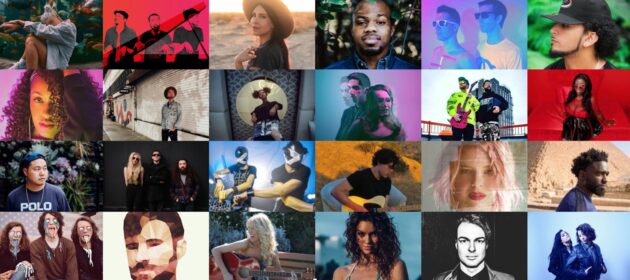
TikTok videos posted by Charli D’Amelio, Miss Universe, and the Philadelphia Eagles are quite different from one another, but they share something in common thanks to a Seattle startup.
Founded in 2009, Audiosocket is seeing growth of its music licensing software products used by social media creators, movie production studios, and others. Now the company is making a play to startups that need music for their games, apps, creator tools, metaverse worlds, and more.
Audiosocket on Thursday launched a new subscription service that automates access to its globally licensed commercial catalog of more than 85,000 songs from more than 3,000 curated indie bands and artists.
The Music as a Service (MaaS) Integration scheme clears the way for developers to use licensed music in digital products immediately, bypassing the normal months and months of red tape associated with licensing music for such usage.
Audiosocket first created MaaS, or what it also calls “micro-licensing,” in 2011, offering the first automated personal and small business licenses for creators of user-generated content.
But co-founder and CEO Jenn Anderson-Miller told GeekWire that the company had become overly focused on LicenseID — software it developed to fight rampant copyright infringement and illegal use of intellectual property. (U.S. Sen. Ted Cruz found out how that tech worked in 2016 when he was running for president and had to settle a lawsuit with Audiosocket for songs he used in political ads.)
During the pandemic, Anderson-Miller led a company pivot, making a bigger push to get more people using Audiosocket’s stable of artists.
“Instead of bringing creators to us, we said, why don’t we go where creators are creating and really push hard to be in all of those ecosystems,” Anderson-Miller said.
The company landed deals with Canva, TikTok, CapCut, YouTube, and more.
On TikTok, the video-sharing social giant, Audiosocket’s artists are trending, amassing more than 300 million views this year. That accomplish demonstrated to Anderson-Miller the desire creators have for high quality music rather than what’s offered by stock music competitors.
Audiosocket also counts a host of other big companies among its clients and partners, including Netflix, Monster Energy, Starbucks, Amazon Prime Video, Ubisoft, HBO and more.

The company has raised $3.5 million — its chairman is Seattle business leader Ted Ackerley of Ackerley Partners — employs 16 people and is profitable. Anderson-Miller said year-over-year revenue growth is at about 70% or 80%. She expects far better growth in 2024 based on just-closed and proposed deals.
Audiosocket competes with stock music libraries and companies such as Stockholm-based startup Epidemic Sound, which has raised more than $500 million for its version of music and tools for creators.
Anderson-Miller said Audiosocket has operated “lean and mean” and is now well positioned to leverage the quality and quantity of its commercial music.
The new subscription platform “is a continuation of meeting creators where they’re creating,” she said. “Because now with this product, anybody building anything for a creator economy can be building it on top of our catalog.”
With artificial intelligence and generative AI looming over the music business and what it could mean for artists, Anderson-Miller said Audiosocket is both leaning in and exercising caution.
The company plans to launch MaaS Toolkit in Q1 as a suite of AI features that will advocate improve its product offerings.
“That’s really just to make music smarter,” Anderson-Miller said, mentioning enhanced capabilities for editing music, finding music, or letting customers create customized journeys within a game. “But it’s not to substitute artists,” she said.
She calls generative AI more of a competitor to stock music, or highlight music, that’s used to carry stories forward. Music that’s written from the heart is different.
“People want human connection,” Anderson-Miller said. “We’re telling stories in ways that computers really just can’t. I don’t think anybody’s looking for artists to go away. And I think we fall into that realm of we’re not just functional music.”

